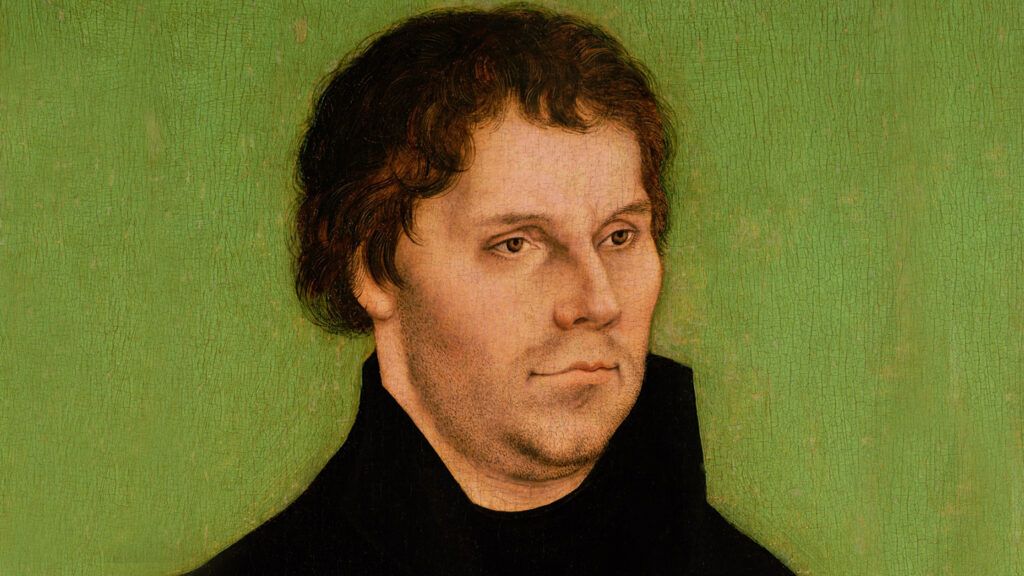On Oct. 31, 1517, a little-known German monk altered the course of history in a way that continues to shape the modern world. This year on the same date, the world’s 560 million Protestants will mark the anniversary of what came to be known as the Reformation. Here are nine things to know about the Protestant Reformation and why it is still relevant a half a millennium later.
1. Martin Luther, born in Germany in 1483, was the man behind the Reformation. As a learned monk, Luther was angered by corruption in the Catholic Church, particularly by the sale of “indulgences”—the remission of sins that supposedly let the purchaser into heaven. The money was to be used for the renovation of St. Peter’s Basilica in Rome, the seat of Pope Leo X. “Why,” Luther asked, “does not the pope, whose wealth today is greater than the wealth of the richest Crassus, build the basilica of St. Peter with his own money rather than with the money of poor believers?”
2. On Oct. 31, 1517, legend holds that Luther nailed his “95 Theses”—list of grievances against the Church—to the door of the church at Wittenberg Castle. The first two theses formed the main foundation of the Reformation—that the Bible, not the clergy, is the sole authority on matters of faith—what Luther called “sola scriptura”—and that faith alone—“sola fide”—and not good deeds, assure salvation.
3. To use a modern phrase, the “95 Theses” went viral, thanks to what was then a new invention—the printing press. One year later, Pope Leo X ruled Luther’s teachings were “scandalous and offensive to pious ears.” He gave Luther 120 days to repent and recant. Luther refused.
4. On Jan. 3, 1521, Pope Leo X excommunicated Martin Luther from the Catholic Church. The Holy Roman Emperor, Charles V, declared the former monk an outlaw whose writings must be burned. Luther went into hiding and, for the next ten years, worked on translating the New Testament from Latin, the tongue of the learned, into German, the tongue of average people. Thanks to the printing press, Luther’s Bible was widely published in 1534.
5. Throughout the 1520s, the Reformation spread beyond Germany to other countries. In most places, Protestants were considered heretics—there were civil wars, persecution, torture and brutal death sentences for many Protestant leaders and believers. But Luther’s ideas had taken hold.
6. By the mid-1500s, reformers like John Calvin and John Knox developed them further. One of Calvin’s ideas was “pre-destination”—that all things, including whether or not someone will receive eternal salvation, are pre-determined by God. Calvinism became the foundation of the Presbyterian, Congregational and Reformed churches, among others. Today, about 37 percent of the world’s 2.2 billion Christians are members of a Protestant denomination.
7. There is a darker side to Reformation history. Luther wrote and spoke frequently and with great passion against the Jews. Some of his works were used by the Nazis to justify their persecution of the Jews. The Nazis saw the Third Reich as the fulfillment of Luther’s Reformation, but other German Protestants abhorred the Nazi’s mix of Christianity and nationalism. German theologian Dietrich Bonhoeffer said of Nazi Germany, “Luther’s words are everywhere, but twisted from truth into self-deception.” Bonhoeffer was executed by the Nazis as a conspirator one month before the end of World War II.
8. If Luther returned today, he would get a surprise—not all Protestants agree with his seminal ideas of “sola scripture” and “sola fide.” In August, the Pew Research Center found that about half of American Protestants say both good deeds and faith are needed to get into heaven. The same amount say Christians need the guidance of church leaders in addition to the Bible. The numbers are about the same in Europe. And this year, in a ceremony in Luther’s Wittenberg, Protestant and Catholic leaders reconciled over Luther’s main breaking point from Catholicism—that salvation comes by faith alone, and not through good works.
9. Five hundred years after Luther wrote his “95 Theses,” its impact is still felt, even beyond religion. Luther’s emphasis on scripture advanced universal literacy, and his emphasis on the individual paved the way for the Enlightenment and its democratic ideals. But his single greatest impact was on faith.
Martin Marty, the religion scholar and theologian, said of Luther, “I have a hard time picturing several aspects of the modern world without Luther. Take, for example, the prominence of the gospel of forgiveness. Though others championed this doctrine as well, Luther was fiery hot. That emphasis, though maybe not with the same heat, still characterizes half a billion people called Anglican, Lutheran, Baptist, Evangelical, and the like. That is the longest shadow Luther casts today.”





